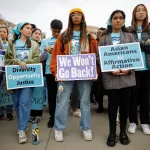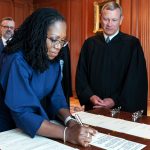Your trusted source for contextualizing the news. Sign up for our daily newsletter.
In her first year sitting on the U.S. Supreme Court, Justice Ketanji Brown Jackson ensured her voice was heard. She has spoken during oral arguments more than any other justice, written several solo dissents and pushed for historical context that is often dismissed in the nation’s highest court.
She stepped into her role as a justice, the first Black woman to do so, as the court took up cases concerning the rights of historically marginalized groups and appeared primed to undo years of legal precedent. Even when Jackson is representing the minority opinion of the court, she has shaped the conversation in meaningful ways.
A clear example came Thursday, when the court ended affirmative action in college and university admissions in two cases involving Harvard University and the University of North Carolina at Chapel Hill. Jackson wrote a scathing rebuke of the UNC opinion in a dissent that provided a review of discriminatory practices that brought about some of the country’s key equal protection amendments.
“With let-them-eat-cake obliviousness, today, the majority pulls the ripcord and announces ‘colorblindness for all’ by legal fiat,” Jackson wrote. “But deeming race irrelevant in law does not make it so in life. And having so detached itself from this country’s actual past and present experiences, the Court has now been lured into interfering with the crucial work that UNC and other institutions of higher learning are doing to solve America’s real-world problems.”
In many ways, this affirmative action dissent — published on the eve of Jackson’s one-year anniversary — captured the power of her presence on the court. Her vocal nature, historical analysis of the Constitution and crafting of dissents that center people most affected by national policy have made her stand out beyond the historic nature of her appointment.
The significance of this is not lost on Black women law professors who, 15 months ago, observed critics doubting Jackson’s qualifications for the position, stating that she is a diversity pick and questioning her possible bias on race-related issues. Now she gets to show what she’s capable of, they told The 19th.
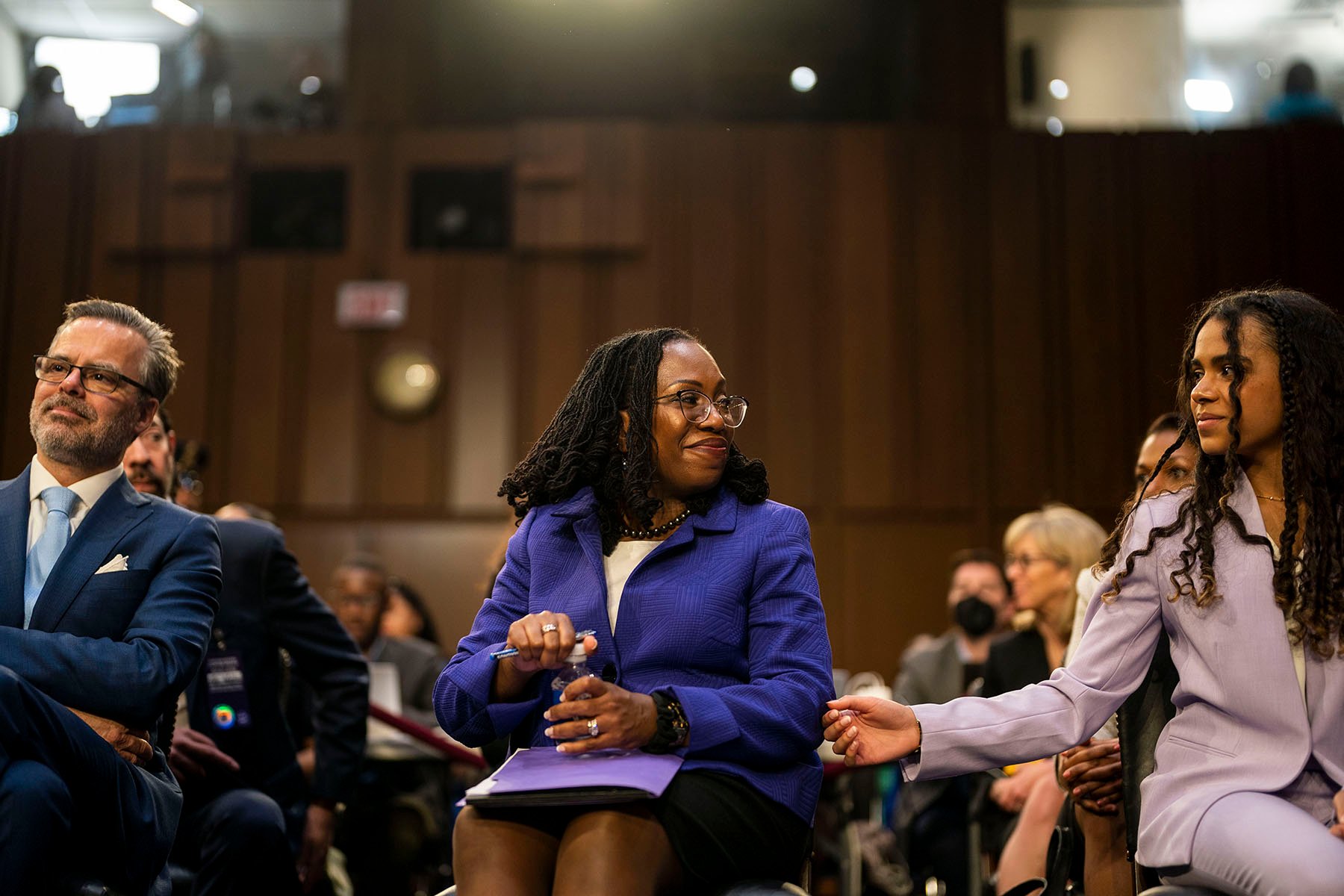
“She is a forceful presence,” said Margaret M. Russell, a professor at the Santa Clara University School of Law. “She seems willing to take on really any case, and to speak her mind and forge dissents that could one day be the majority opinion on the court.”
Jackson was sworn into her historic seat on June 30, 2022, replacing Justice Stephen Breyer, whom she clerked for after law school. With her addition, a multiracial group of three women make up the liberal wing of the court for the first time: Justices Jackson, Sonia Sotomayor and Elena Kagan.
Jackson joined the court during a precarious time. Public confidence in the institution had reached historic lows; justices faced ethical concerns and accusations of political bias. The summer of Jackson’s swearing-in, the court overturned federal abortion rights, igniting a new sense of urgency among the public about the court’s broad power to shape American life.
Her perspective has been front and center this year as the justices have taken up cases that force them to consider the country’s history on race relations.
In her dissent on affirmative action, Jackson argues that the conservative majority is pushing a version of equality that is not rooted in the reality of the lived experiences of historically marginalized communities.
“It would be deeply unfortunate if the Equal Protection Clause actually demanded this perverse, ahistorical, and counterproductive outcome,” she wrote in the dissent. “To impose this result in that Clause’s name when it requires no such thing, and to thereby obstruct our collective progress toward the full realization of the Clause’s promise, is truly a tragedy for us all.”
Her response speaks to the heart of race-conscious admissions, which is often overlooked by conservative critics: The goal of affirmative action is not just to bring diversity to educational institutions, but to address the decades of systemic inequities that have shut Black students and other students of color out of these spaces at disproportionate levels.
“She’s been using the idea of originalism, which has always been thought of as a very conservative notion on the court, to explain the original meaning and intent of the Reconstruction-era amendments: the 13th 14th and 15th Amendments,” Russell said.
This approach, referred to as “progressive originalism,” or even “Justice Jackson’s originalism” to some, appeared several times throughout the court term.
A high-profile case about voting rights heard in October was another notable moment. In Allen v. Milligan, the state of Alabama argued that it had drawn its voting districts in a race-neutral way and that overemphasis on race in creating districts violated the 14th Amendment’s Equal Protection Clause.
Jackson pushed back on this idea.
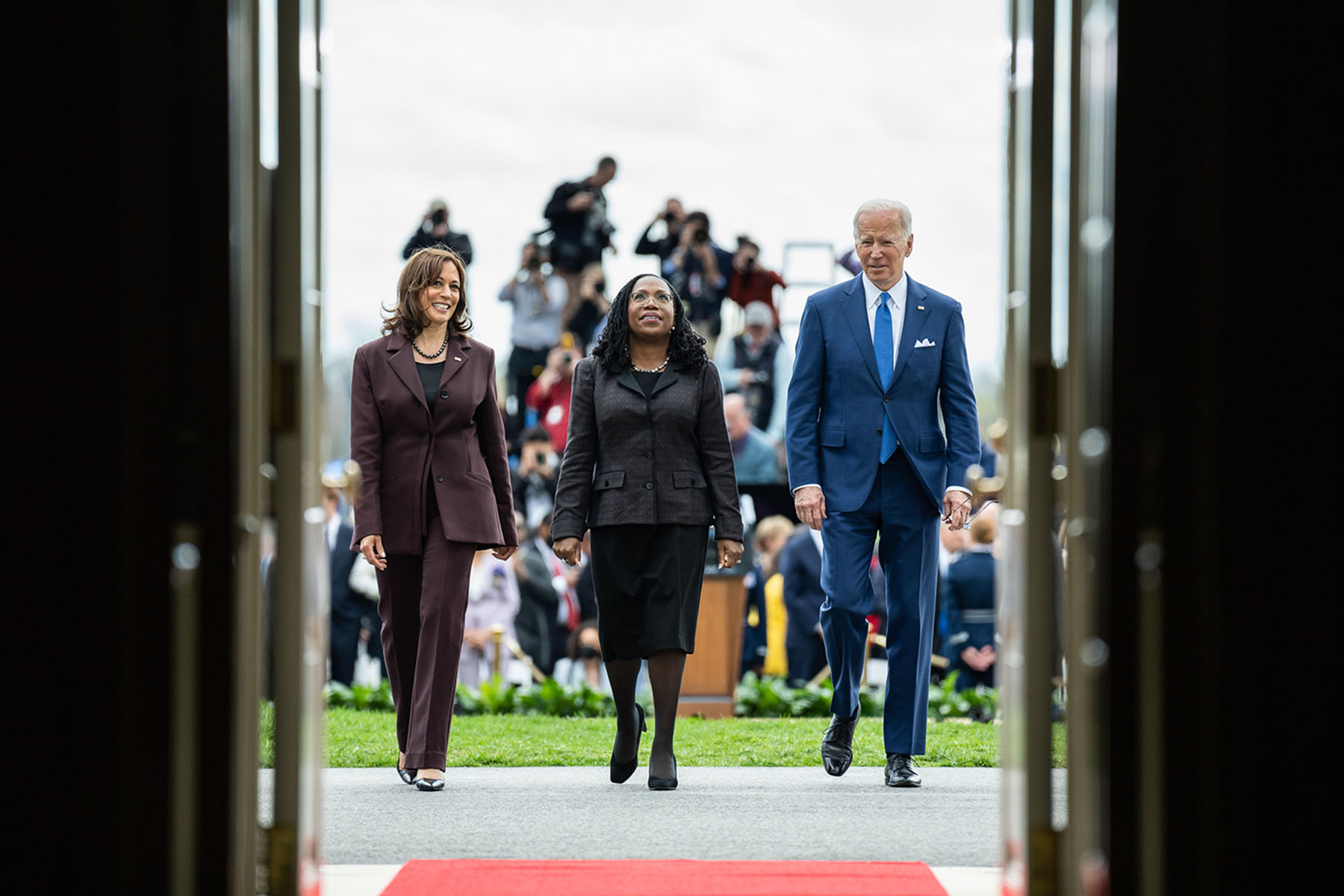
“I understood that we looked at the history and traditions of the Constitution at what the framers and the founders thought about, and when I drilled down to that level of analysis, it became clear to me that the framers themselves adopted the Equal Protection Clause, the 14th Amendment, the 15th Amendment, in a race-conscious way,” Jackson said during oral arguments. “They were, in fact, trying to ensure that people who had been discriminated against … were actually brought equal to everyone else in the society.”
Ultimately, this month the court ruled that Alabama’s congressional voting districts likely violate the Voting Rights Act and required the state to redraw them to add another majority-minority district.
Jackson’s words offered a “broader view of American legal history” that challenged interpretations of the Constitution as a more conservative document, said Michele Bratcher Goodwin, chancellor’s professor at the University of California, Irvine School of Law.
“To understand the Constitution is to understand that those were anti-slavery amendments,” Goodwin said. “So when people say, ‘The Constitution was never meant to talk about race,’ that’s historically inaccurate.”
-
Previous Coverage:
Her outspokenness in these cases was not an anomaly.
In total Jackson spoke 78,800 words this term, according to a report by Adam Feldman, a former statistics editor for SCOTUSblog, an independent news site that covers the court. Her word count was significantly higher than Sotomayor, who was the second-most vocal justice at 50,100 words, according to Feldman’s analysis. The three liberal women justices were the most active speakers on the court.
For many, it’s no surprise that the two most vocal people on the court would be the only two women of color.
“Justice Jackson hit the ground running with a kind of confidence,” said Melissa Murray, a law professor with New York University. “Black women should have been on this court a long time ago, and she’s making up for lost time.”
Beyond the volume of her words, experts note that Jackson also stands out in the way she speaks about the issues before the court. In a departure from many other Supreme Court justices, Jackson seems concerned with the individual human impact of the court’s decisions, said Tonja Jacobi, a professor of law at Emory University.
Jacobi said that among the nine justices, Jackson and Sotomayor in particular are less satisfied with the “formalistic analysis” of more conservative members of the court.
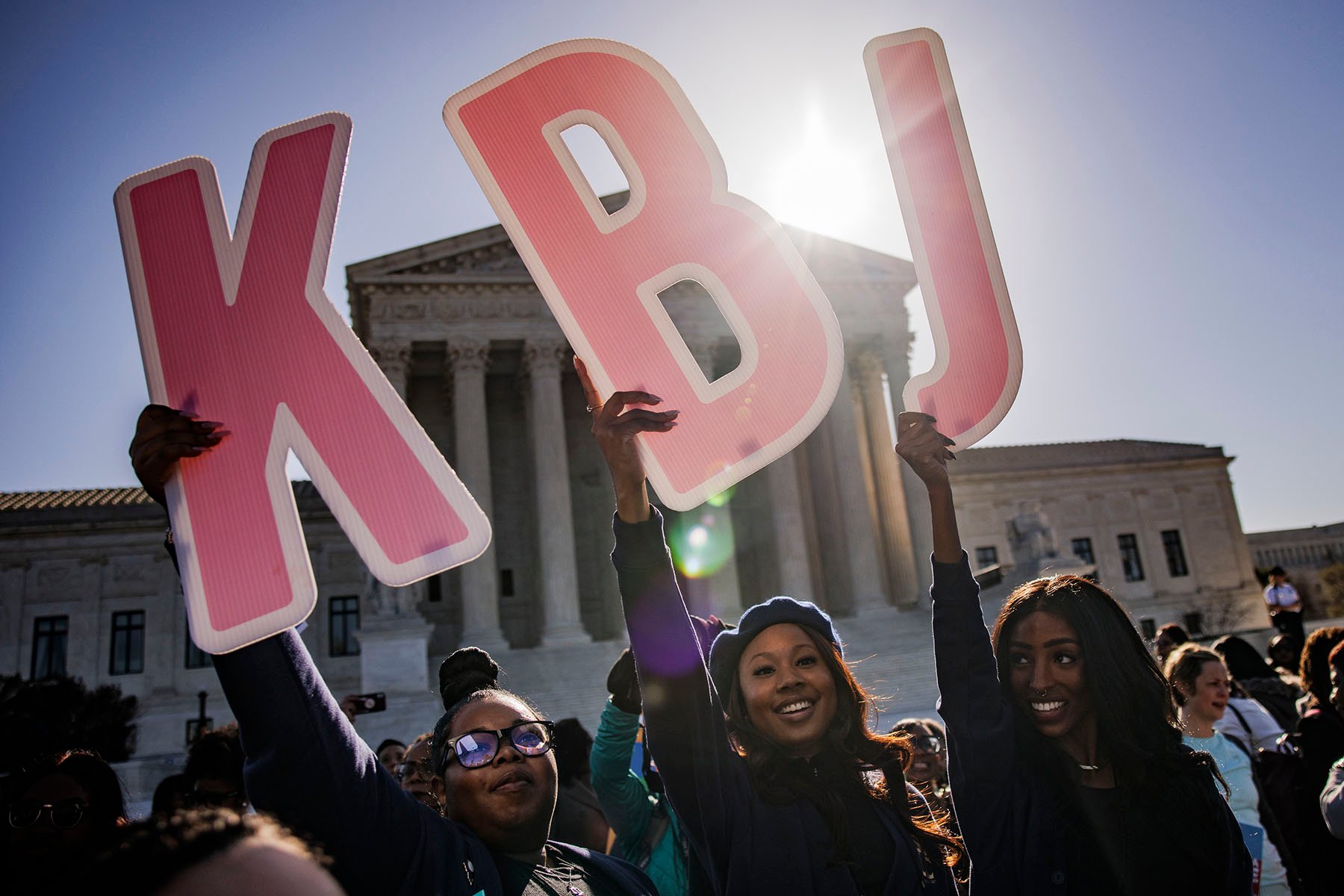
This is reflected in Jackson’s dissents, including one criticizing a ruling of the conservative majority that makes it more difficult for people in prison to challenge wrongful convictions.
“Forever slamming the courtroom doors to a possibly innocent person who has never had a meaningful opportunity to get a new and retroactively applicable claim for release reviewed on the merits raises serious constitutional concerns,” Jackson wrote in the solo dissent.
Though Jackson, Sotomayor and Kagan are in the ideological minority, a strong dissent can hold power.
They can be used by legal advocates in current fights over legislation, and they can serve as a roadmap for future legislative change. If the court shifts left ideologically in the future, these dissents may become the basis for majority opinions.
-
From Errin Haines:
-
From Errin Haines: ‘Vote, run, win and lead’: Counting Black women’s seats at the table
Jackson’s dissents are distinct both for the structure of her arguments and her willingness to write alone. She has authored five solo dissents, which is unusual for a first-year justice, Feldman told The 19th. This “speaks to her comfort not only writing solo, but getting out views that she might not share with other justices — even on the left,” Feldman wrote in an email.
But Jackson has also displayed a willingness to find common ground with her colleagues, he continued. On the whole, she has frequently joined the majority opinion of the court and has dissented far less than Justices Kagan, Sotomayor and Breyer did during their respective first terms, according to Feldman’s report. She has also joined concurring opinions with conservative members such as Justice Neil Gorsuch — and Feldman notes that the number of decisions where conservative and liberal justices combine for the majority has increased from the previous term.
“I’ll have a stronger sense after we get the next set of decisions in, but Jackson already is showing that while she is clearly a progressive justice, she is also unique in her views,” Feldman wrote to The 19th. “This does not feel like the same court as we had last term, and I think a large part of that has to do with adding Jackson to the court.”







